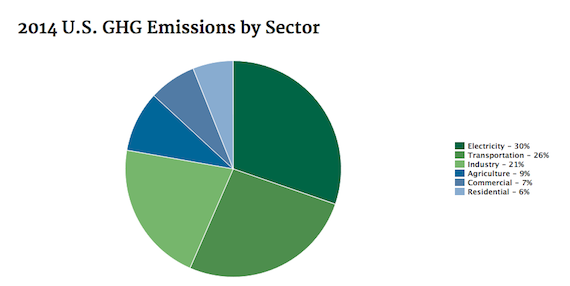By Juan Cole | (Informed Comment) | – –
The answer to the question in the title depends very much on the precise question being asked and on the country. If we are talking new vehicle manufactures and sales, the Netherlands and Norway say 2025. Germany and India say 2030. And now France says 2040.
French environment minister Nicolas Hulot, a knowledgeable and committed environmentalist, has set a goal that all new automobiles bought in France in 2040 will have to be electric. It is not at all an unrealistic scenario, and, indeed, is likely ‘way too conservative.
Renault’s Zoe is the electric best-seller in France now, but it is slated to have lots of competition. People complain that electric cars are still a little expensive. The Tesla X and Chevy Bolt are, at $35,000, though lots of middle class families buy gas guzzlers in that range. But the first Tesla was three or four times as expensive, so the price is coming down quickly. When you can get an electric car for $10,000 and free fuel via inexpensive solar panels, the EVs will suddenly take over rapidly, as happened beginning in the early 20th century with the Model T.
Government policy is being driven by the dangers of human-caused climate change. The countries of the world except for rogue nation USA are committed to keeping warming to 3.6 degrees Fahrenheit (2 degrees C.) above the base that existed at the time of the American Revolution. We’re already 2 degrees F. hotter than in the time of Thomas Jefferson, and the carbon dioxide we’ve already put into the atmosphere by burning coal, gas and petroleum is enough to raise temperatures another degree F. So we’re already scraping up against that 3.6 degrees F. increase, and we’re almost certainly going to miss the mark and go hotter. Scientists are afraid if we go to a 7 degrees F. increase (4 degrees C.), it may make the world’s weather system chaotic and produce serial disasters, including food shortfalls, mega-storms, and long-term droughts, not to mention rapid sea level rise. A 7 degree increase doesn’t sound catastrophic, but it is an average of the surface of the whole world, including cold oceans and the Antarctic. So where you live, if it is 112 degrees F. in the shade this summer, it may go on up to 125 F. That will dry out the soil and put people under a lot of stress.
In the US, at least, transportation at the moment accounts for 26% of greenhouse gas emissions.
So Hulot is right that in order for most countries to reach the goals of the Paris Accord, we have to green the transportation systems. More public transport and more EVs are the only ways to do it.
People have often asked me whether the revolution in green energy won’t make petroleum so cheap as to then give it an edge whereby it can come back. My answer is that gasoline/ petrol will be outlawed. Sooner or later, climate change will produce some dramatic and undeniable calamity, and the public mood will turn ugly.
It matters that governments are setting these deadlines. Governments set access to markets. The European Union 28 buy roughly 16 million cars a year. Ford, GM and Chrysler want to sell to that market. But if they have to sell EVs (electric vehicles) in order to play, then they had better start manufacturing competitive EVs. In that regard, right now GM is best positioned for the future, with the Chevy Bolt (made and marketed in Europe as the Opel Ampera-E). At 250 miles on a charge and a price tag of $35,000, it is at least in the game. In fact the release date of the European version was moved up because of high Norwegian demand.
There are roughly 1.2 billion automobiles and other light vehicles on the road around the world, servicing 7.4 billion people. By 2040 there will likely be 2 billion cars on the road, servicing about 9 billion people.
Something like 88 million cars are sold every year. If all of them were EVs, after a while there would be no gasoline cars (governments may have to give tax breaks to get the petroleum vehicles off the road sooner).
Response to climate change is driven by three considerations: Public opinion, government policies and incentives, technology and its cost, and the market. The market is not, as some ideologues imagine, an independent driver of affairs; it plays by the rules set by the government and technology. But at the same time, the market is an efficient means of setting prices and distributing goods, and so has an enormous impact on consumer behavior.
Hulot is setting new rules for the French car market, and the market will respond over time.
——
Related video:





 © 2025 All Rights Reserved
© 2025 All Rights Reserved